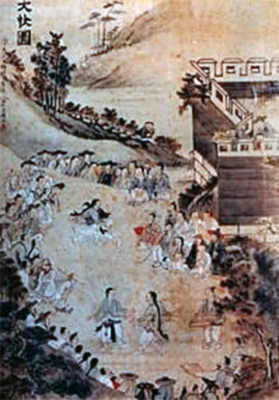Taekwondo made its debut as a demonstration Olympic sport at the 1988 Seoul Games, and became an official medal sport at the 2000 Sydney Games. It is one of the two Asian martial arts present in the Olympic program – the other being judo.
The definition of Taekwondo
“Taekwondo is an empty-hand combat form that entails the use of the whole body. Tae means “to Kick” or “Smash with the feet,” Kwon implies “punching” or “destroying with the hand or fist,” and Do means “way” or “method.”
Taekwondo thus, is the technique of unarmed combat for self defense that involves the skillful application of techniques that include punching, jumping kicks, blocks, dodges, parrying actions with hands and feet. It is more than a mere physical fighting skill, representing as it does a way of thinking and a pattern of life requiring strict discipline.
It is a system of training both the mind and the body in which great emphasis is placed on the development of the trainee’s moral character.”
– from the book of Comprehensive Asian Fighting Arts
by Donn F. Draeger and Robert W. Smith.

An old Korean painting
The Eleven Commandments of modern day Taekwondo
- Loyalty to your country
- Respect your parents
- Faithfulness to your spouse
- Respect your brothers and sisters
- Respect your teachers
- Respect your elders
- Indomitable spirit
- Finish what you begin
- Loyalty to your friends
- Loyalty to your school
- Never take life unjustly
– from the book of Tae Kwon Do: The Ultimate Reference Guide to the Worlds Most Popular Martial Art
by Yeon Hee Park, Yeon Hwan Park and Jon Gerrard

